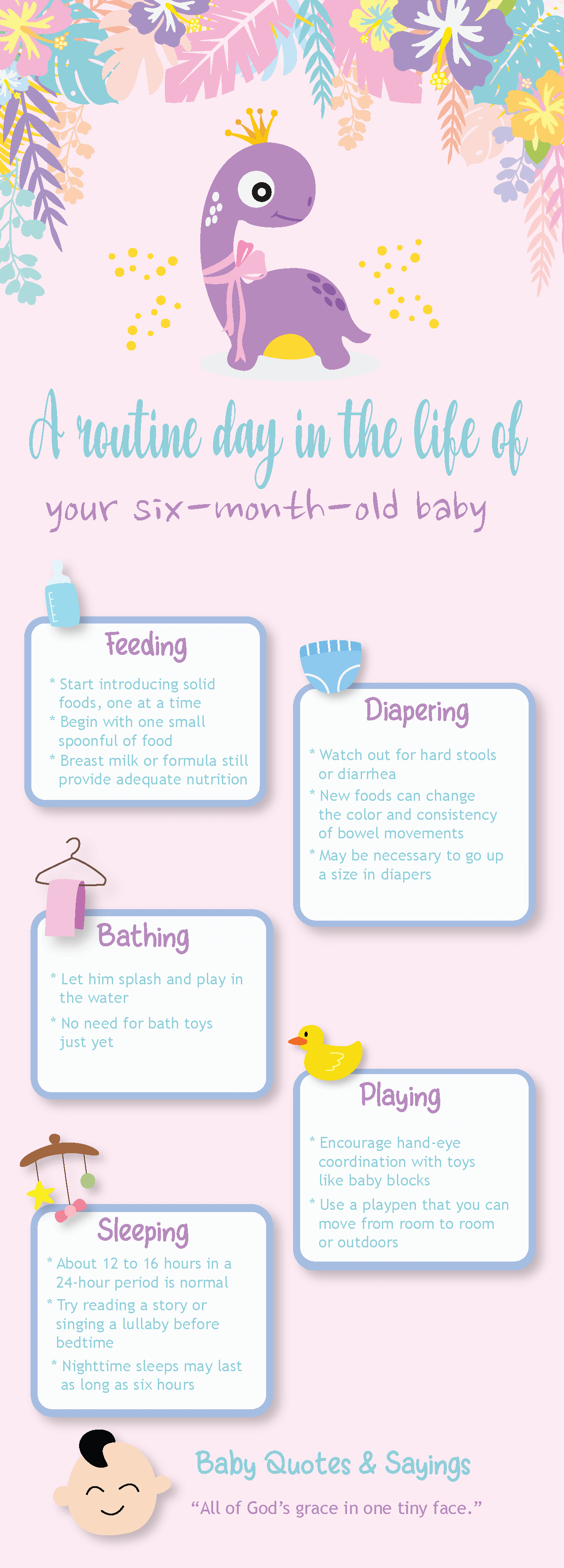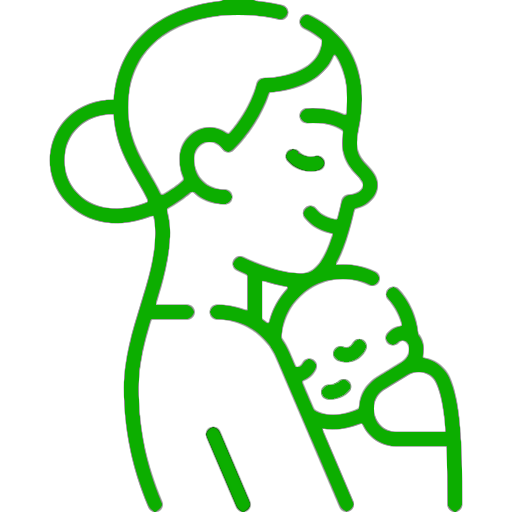Feeding Your Six-Month-Old Baby
It’s a great time to start your Six-Month-Old Baby on solid foods. Choose a time of day when your infant is not weary and is hungry. Support him in your lap or an infant seat and feed him with a little spoon. Place the spoon on his lips and let him smell and taste the food. He may reject the meal, but he will try again in a minute. It’s absolutely natural for the first few spoonfuls of food to end up on your baby’s bib, tray, or chin.

Many newborns will begin with iron-fortified, single-grain cereal mixed with breast milk or formula, but if you’re unsure, consult your baby’s healthcare professional. Only introduce one new food at a time, and wait a few days before introducing another, such as pureed vegetables or fruit. Keep an eye out for any rashes, diarrhoea, or vomiting, and visit your doctor to rule out any food allergies or sensitivities, especially if you or your spouse has a food allergy.
To avoid choking, make sure your baby sits properly and feeds him only soft, easy-to-swallow food. Baby food should not be placed in a bottle because it can be a choking hazard. If your infant has reflux, your healthcare professional may propose bottle feeding with a thicker formula in some circumstances.
Even though your child is diversifying his diet with solids, he will still require breast milk or formula. At 6 months, your baby may be drinking up to 8 ounces of breast milk or formula every four to five hours.
How Much Sleep Does a 6-Month-Old Infant Require?
Your infant may sleep 12 to 16 hours per day when she is this age. At six months, she might sleep for nine hours a night, occasionally longer, with a few minor awakenings. She will still require two or three naps during the day.
A Day in Your Baby’s Life
Although every baby is different, here is an example of a daily schedule you could follow for your baby’s eating, sleeping, bathing, and playing routine.
Earaches and Infections in Your Baby
Your baby’s risk of infection increases as she becomes more mobile and reaches for more objects. Keep your kid away from someone who has the flu or any other infectious sickness. However, it is often impossible to keep your child from being ill. Six-month-olds are prone to the following health issues:
- Diarrhoea. This could be related to interaction with viruses (such as norovirus) or germs, the introduction of new foods such as fruit juice, or your infant having a food allergy.
- Fever. Infants’ temperatures may be greater than those of older children. A fever is not an illness in and of itself, but rather a symptom of something else. It could indicate that your baby’s body is fighting an infection.
- Earache or inflammation of the ear. Middle ear infections are prevalent in newborns and children aged 6 months to 3 years, and they frequently arise after a kid has had a cold. If your baby appears to be in discomfort, give her acetaminophen or ibuprofen at a dose appropriate for her age, or apply a warm compress to her ear to help relieve the pain. Your baby’s doctor may also offer pain-relieving ear drops. Some ear infections are caused by bacteria and may necessitate antibiotics, so discuss treatment choices with your 6-month-old baby’s healthcare practitioner.
If you discover diarrhoea, fever, or an ear infection in your infant, consult with a healthcare expert who can offer therapy and rule out any more serious issues.
As your baby reaches out to grab items and explore the world, be mindful of what his little hands can come into contact with. Babies enjoy putting things in their mouths, so never offer your 6-month-old any food or toys that could cause a choking hazard, and never leave anything unsafe within his reach.
A Day in the Life of Your Baby
Every baby is different, but here’s a glimpse of what a typical day could look like with your baby.

COMMONLY ASKED QUESTIONS
What toys are appropriate for a 6-month-old baby?
- A 6-month-old should play with toys that encourage his or her growth, such as a rattle, a child-safe mirror, or a ring stack.
How do infants learn to sit?
- At first, your baby may want some assistance from you to sit up, and she may require your support to remain seated. She will next learn to use her arms to prop herself up and, eventually, she will be able to sit on her own.
Why does my baby wake up in the middle of the night?
- Your kid may wake up in the middle of the night because he is hungry or wants his diaper changed. If he isn’t hungry or needs to be changed, let him go back to sleep.
Dealing With Sibling Rivalry in Your Parental Life
If you have older children, particularly those under the age of two, you may notice a spark of sibling rivalry. Your older child may become irritated about sharing the spotlight as your younger child grows and demands more attention. You can try to calm the older child’s emotions by immersing him in more activities with the infant, such as reading a tale or singing a song together. This can be enjoyable for all of you and help the older sibling feel more involved in the baby’s life.
This page is based on professional advice from reputable medical and government organizations, such as the American Academy of Pediatrics and the American College of Obstetricians and Gynecologists. This page’s material should not be used in place of professional medical advice. For a complete diagnosis and treatment, always seek the advice of a medical expert.












Leave a Reply
View Comments